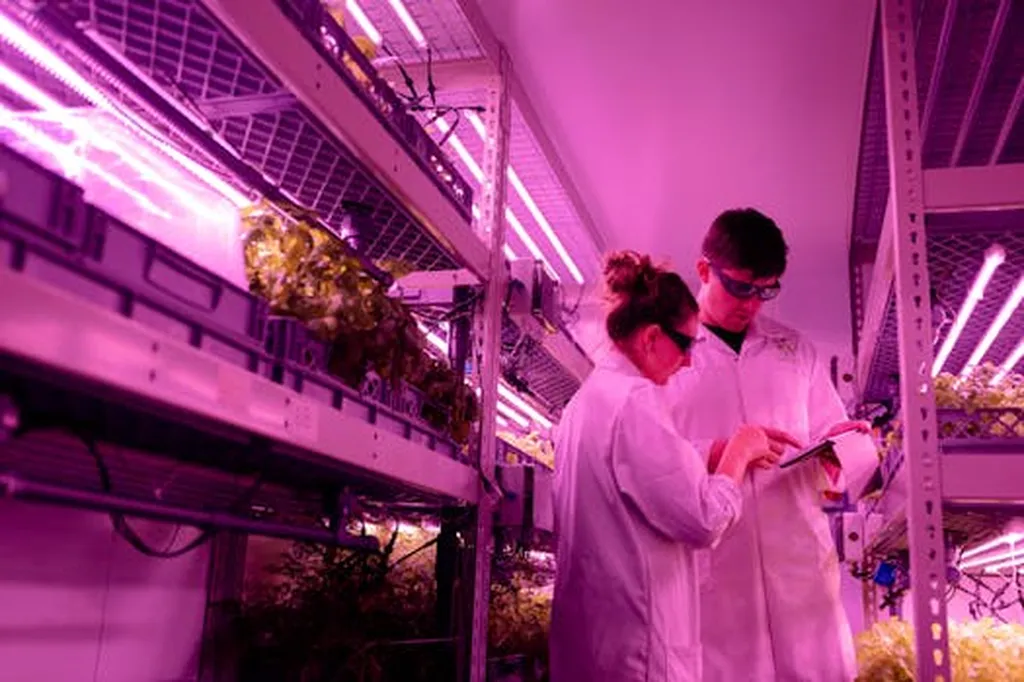In the heart of Portugal, researchers are pushing the boundaries of sustainable agriculture and medicinal plant production. Marisa S. C. Lourenço, a lead researcher at the GreenUPorto—Sustainable Agrifood Production Research Centre at the University of Porto, and her team have been exploring the potential of vertical farming (VF) systems to produce high-value anticancer compounds from *Catharanthus roseus*, commonly known as the Madagascar periwinkle. Their findings, published in the journal *Plants* (which translates to “Plants” in English), could reshape how we approach plant-based pharmaceutical production.
The study focused on nine different cultivars of *C. roseus*, assessing their morpho-physiological responses and their ability to produce anticancer-related terpenoid indole alkaloids (TIAs) under a vertical farming system. The results were striking, revealing significant variability both between and within the different plant series. “We found that the concentration of key anticancer alkaloids like vinblastine (VLB) and vincristine (VCR) varied greatly depending on the cultivar and the plant organ,” Lourenço explained. This variability underscores the importance of selecting the right cultivar for maximizing yield in a vertical farming setting.
One of the most compelling findings was that the total concentration of anticancer-related TIAs was significantly higher in leaves compared to flowers, ranging from 1.6- to 5.9-fold. However, the distribution of VLB and VCR was not uniform across all cultivars. For instance, the ‘C-Red’ cultivar showed higher concentrations of both alkaloids in its leaves, while ‘C-XDR-PN’ and ‘C-XDR-WT’ had significantly higher concentrations of VCR in their flowers, with increases of 3.15 and 4.05 times, respectively. This cultivar-dependent variability highlights the need for careful selection when aiming for commercial production of these valuable compounds.
The implications of this research are far-reaching. Vertical farming systems offer a controlled environment that can enhance the efficiency and sustainability of plant molecular farming (PMF). By optimizing the cultivation of *C. roseus* and other medicinal plants, researchers can potentially increase the yield of high-value compounds like VLB and VCR, which are crucial in chemotherapy treatments. “Our findings suggest that VCR concentration may serve as a more reliable marker for selecting cultivars with high anticancer alkaloid yield, rather than relying solely on total biomass or overall TIA content,” Lourenço noted. This insight could guide future breeding programs and commercial production strategies, making the process more targeted and efficient.
As the demand for sustainable and efficient agricultural practices grows, the integration of vertical farming with plant molecular farming presents a promising avenue for the pharmaceutical industry. By leveraging the natural variability within *C. roseus* cultivars, researchers can optimize the production of life-saving compounds, ultimately benefiting patients and the healthcare sector. The work of Lourenço and her team not only advances our understanding of plant biology but also paves the way for innovative solutions in medicinal plant production.

